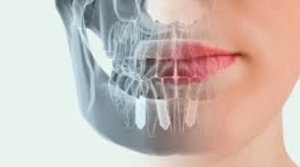Dental absences have ceased to be an aesthetic and functional problem with the use of dental implants. Technology has turned this intervention into a routine procedure in the offices, however there are still doubts regarding this issue. We have compiled the most usual doubts of our patients to try to clarify these concerns.
- Is it a painful and complicated procedure? It is a procedure that is performed under local anesthesia and is ambulatory. Sometimes it has to be performed in operating rooms but it is not usual, it is usually carried out within the clinical consultation. It does not have major complications, it has the same postoperative indications as a simple extraction, the taking of antibiotics and analgesics depends on each clinical case and does not require absolute rest. It is vital that the procedure be performed by a specialist oral or maxillofacial surgeon and in this way reduce risks. As for whether it is a complicated procedure or not, it is really a protocolized procedure, with very predictable results, so if the technique is mastered and performed by an expert it is usually simple. Today, technology evolves along with dentistry, the use of T.A.C (computerized axial tomography) and guided and designed surgical splints have converted the placement of implants into routine protocols and standards with high success rates.
- How long do dental implants last? The percentages of successes of survival, which means the number of implants that are in the mouth in operation and in health conditions, tend to oscillate between 80% and 95% in times longer than 20-30 years of follow-up of the implants. They are clinical procedures that are designed to be in the mouth and work like a normal tooth for many decades and although we do not like to use the word “forever”, they are long-lasting procedures, it also depends on the scientific article that is referred to. However, it is essential to emphasize that implants can suffer problems in their support such as perimplantitis (periodontitis on the surface of the implants) so we need to do clinical and radiographic controls, hygiene and maintenance, and in this way we can guarantee the best survival in mouth.
- What care do they need? Implants need the same care as natural teeth because they suffer similar problems, loss of bone support, overloads or periodontal infections, among others. However, with good hygiene, dental controls and oral hygiene every 6 months and use of splints of discharge, among other considerations that vary according to each patient, no problem should arise.
- Can the patient reject the dental implant? There is a very low percentage, from 1 to 5% of implants must be removed from the patient’s mouth by rejection. It can usually occur for 2 reasons. Failure in the technique: The implant was placed before a complete healing was generated, this means that the final crown had been placed and in complete occlusion before a complete osseointegration was generated, which is usually 3-4 months. Another problem that may arise is the overheating of the bone at the time of implant placement because a lot of force or little irrigation is applied. There may also be a periodontal problem such as uncontrolled periodontitis. All this is the responsibility of the oral or maxillofacial surgeon, so it is vital to perform the procedure by experts who master the technique. Conditions of the patient: Smoking patients reduce the success rate of the procedure, also not having good hygiene or even scarring problems. However, all the factors are controlled to ensure the success of the treatment. Trying to predict the failure of the implant is impossible, the keys are clinical control and follow the guidelines of the specialist.
- Is there an age limit for implant placement? In principle, it is only a conditioning factor at an early age, that is, it is not advisable to place implants in a jaw that is still growing, so at least a bone age majority of around 18-21 years is recommended. In terms of maximum age, factors such as quantity and bone quality or hygiene and motor capacity of the patient, among others, are always valued. Therefore, age is only a conditioning if there are more factors that limit the hygiene of the patient or the osseointegration of the implant.
We hope that these questions have been able to clarify some doubts, however, in case of any doubt, do not hesitate to make an appointment with your trusted specialist.
Dental Clinic Unit / Dr. Jimenez



